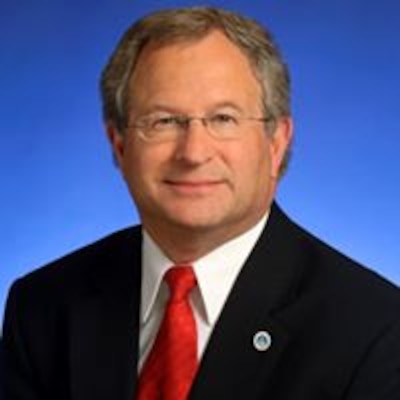Tennessee’s proposal to move all 30 schools out of its struggling turnaround district is already sparking debate about exactly who should run them.
House Education Committee Chairman Mark White says any charter schools in the Achievement School District should be entrusted to the state’s new charter commission — not their local districts.
“The commission is going to help us understand how to have the best charters and manage them most effectively, and that’s where these schools need to be,” said the Memphis Republican, who sponsored Gov. Bill Lee’s legislation last year to create the body.
But Rep. Antonio Parkinson, one of the Achievement School District’s most ardent critics, says all 30 schools should return to local districts in Memphis and Nashville, where they operated before being taken over by the state-run district for chronic low performance.
“Moving these schools to the new charter commission would amount to a sleight of hand,” said Parkinson, a Memphis Democrat. “It would just essentially create another state-run district that’s called by another name.”
The question likely will be debated in the upcoming legislative session. Shaking up the Achievement School District is the most dramatic component of the education department’s proposal to reset Tennessee’s school improvement strategies, many of which are codified in state law.
The proposal acknowledges that the achievement district’s strategies and its charter-reliant turnaround model have not worked since its launch in 2012. Few of its schools have moved off of Tennessee’s priority list of schools that are academically in the bottom 5%.
The department wants a 2½-year runway for those 26 charter schools and four direct-run schools to prepare to return to their zoned districts as they also seek to exit priority status. Charter operators could apply to their local districts and, if denied, could appeal to the charter commission, according to David Donaldson, chief of human capital. “The department is continuing to explore other legislative options for high-performing charter schools,” he added.
But White wants the charters moved directly under the commission and discussed that idea earlier this week in a meeting with Education Commissioner Penny Schwinn, herself a former charter school leader. He argued that the entity, overseen by a nine members representing all three regions of Tennessee, would be better poised to work with exiting charter schools than either Shelby County Schools or Metropolitan Nashville Public Schools, both of which have sought to curtail charter growth in their districts.

“I don’t think it’s in our best interest to return these schools to the school districts given all the effort we’ve put into the charter movement in Tennessee since 2002,” White said after speaking with Schwinn.
Nevada took a similar approach last year when closing its achievement district after struggling to attract charter operators and facing intense pushback from the communities it served. Four charters from that district now operate under a state-run charter school authority.
The Tennessee Charter Commission is under development. Its nine members have been named by the governor, and a search will soon be underway for a full-time executive director. Beginning next January, the body will take over the state Board of Education’s role of handling appeals from applicants whose charters are denied by local boards. The commission also could end up authorizing new charters as part of the appeals process and will be responsible for overseeing three that already operate under the state board.
A 2002 law opened the door in Tennessee to charters, which are independently run but publicly funded schools that are given more autonomy to innovate than their traditional counterparts. Memphis has the vast majority of Tennessee’s 112 charters, followed by Nashville, Chattanooga, and Knoxville.
Elected school officials in both Memphis and Nashville are expressing cautious optimism about transitioning schools out of the state-run district.
“I think I have more questions than answers. Everybody does,” said Nashville school board member Gini Pupo-Walker. “But our district would be more than happy to take our schools back and innovate and figure out the best way to support these schools.”
In Memphis, board member Michelle McKissack called the change an opportunity for Shelby County Schools. “It’s time to try something different,” she said.
Stephanie Love, another board member in Memphis, said the state’s proposal should be accompanied by “honest conversations” about the costs of school turnaround work.
“It’s one thing to return these schools; it’s another to give them what they need,” Love said. “We can’t keep taking them from one district to another and still not give them the services they need.”
Pupo-Walker also is concerned about what would happen inside of the achievement district between now and 2022, the state’s proposed deadline for schools to exit.
“Children are sitting in those schools right now, and every day is important to their future. Are we still showing a sense of urgency around improving those learning environments?” she asked.
Amid all of those questions, state officials say the Achievement School District would not be dissolved under the department’s proposal.
“It will remain the state’s most intensive intervention,” said Eve Carney, the department’s chief districts and schools officer. “When you’ve been doing something over a long period of time, there are lots of good things that we’ve learned and we’ll capitalize on those.”
Chalkbeat reporters Laura Faith Kebede and Caroline Bauman contributed to this report.

